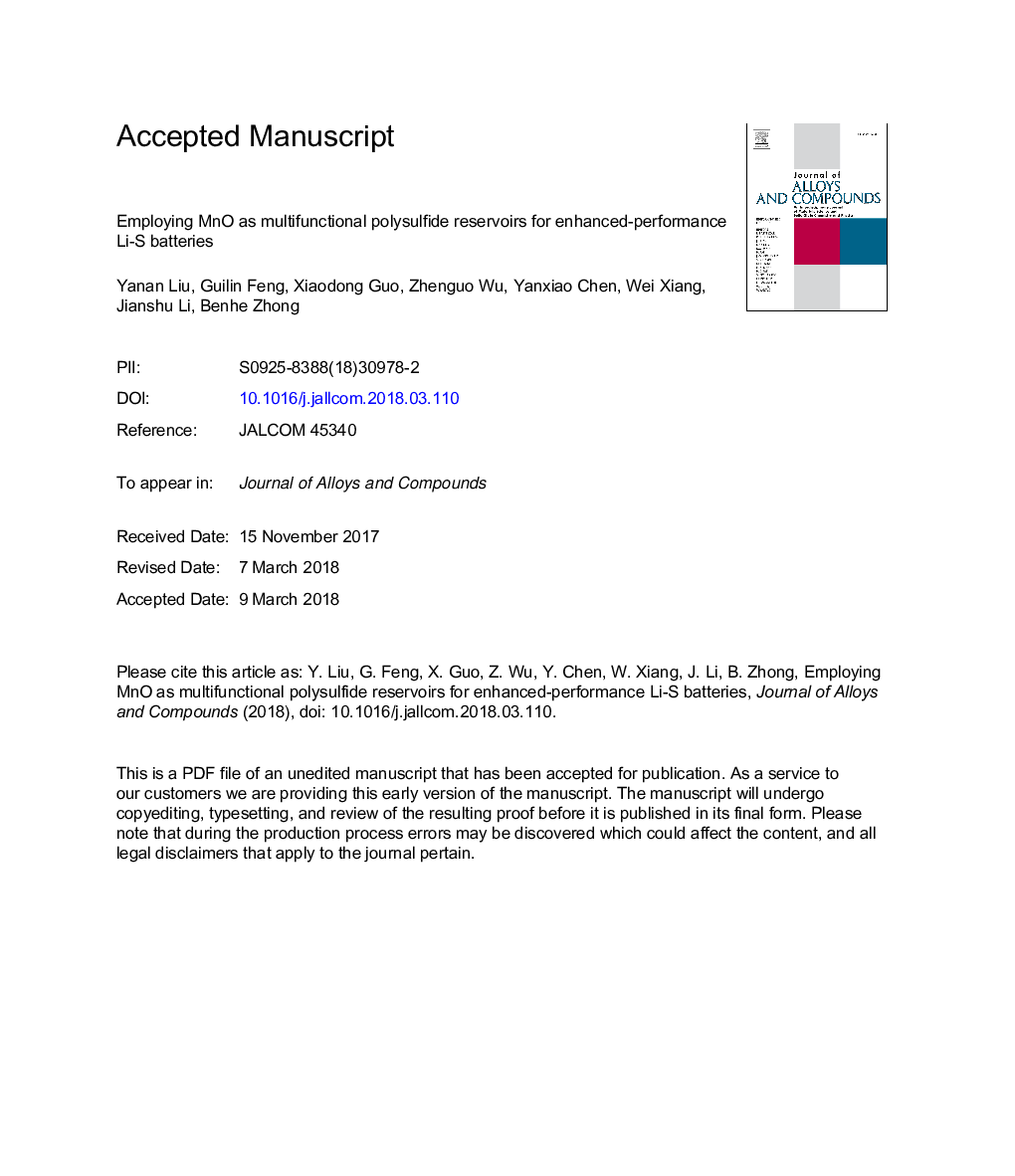| Article ID | Journal | Published Year | Pages | File Type |
|---|---|---|---|---|
| 7992191 | Journal of Alloys and Compounds | 2018 | 30 Pages |
Abstract
The lithium sulfur (Li-S) batteries are greatly fascinating as the next-generation storage devices owing to their high theoretical energy density and low cost. However, the fast capacity decay resulting from the “shuttle effect” of polysulfide ions and the irregular deposition of the discharge products (Li2S/Li2S2) severely hinder their commercial application. Herein, micro-mesoporous carbon-MnO (MnO/MPC) composites were synthesized with wet impregnation method and applied as the cathode material. In Li-S cells, the MnO/MPC@S cathode showed a rather better cycling stability over 150 cycles than a MPC@S cathode (sulfur loading â¼74%). The influences of the MnO amount and the heat treatment temperature were investigated and optimized. The 10%-MnO/MPC@S cathode material calcined at 600â¯Â°C showed excellent rate capability and cycling stability. Owing to the polar MnO nanoparticles, the soluble lithium polysulfides (Li2Sn, 2â¯<â¯nâ¯â¤â¯8) can be effectively adsorbed on the host material and the depositing of Li2S and Li2S2 could also be regulated and controlled. Furthermore, compared with the pristine MPC material, the existence of MnO nanoparticle can effectively enhance the reaction kinetics, which could be ascribed to the plenty of polar sites on the surface of MPC material and the electrocatalytic activity of MnO.
Related Topics
Physical Sciences and Engineering
Materials Science
Metals and Alloys
Authors
Yanan Liu, Guilin Feng, Xiaodong Guo, Zhenguo Wu, Yanxiao Chen, Wei Xiang, Jianshu Li, Benhe Zhong,
